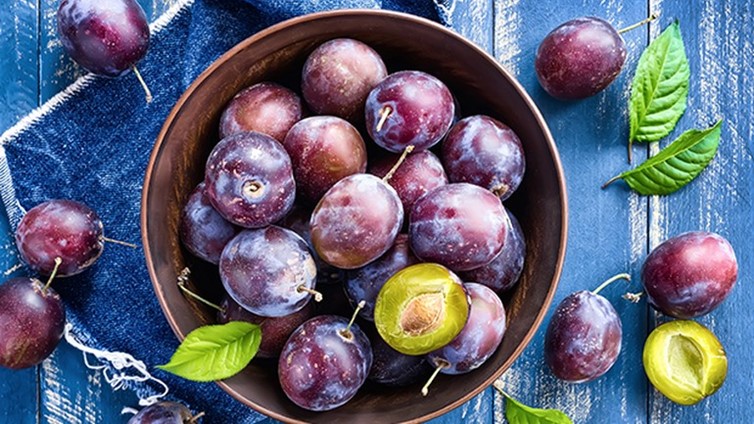Sharing food with pets is something that a lot of us are lured to do regularly. When they're sitting under the table looking can dogs eat ginger up at us with those puppy dog eyes, it's difficult not to! If we're delighting in the food, surely it can't harm to provide simply a little taste of whatever it is that we're taking pleasure in?
Well, this, obviously, depends quite on what it is that you occur to be consuming at the time! And while a few of the vegetables and fruits you eat generally might make tasty and healthy treats for your canine companion, others aren't so great.
: can dogs eat plums? Sadly, these are fruits that fall into that latter category. That is to state that no, dogs ought to not eat plums.
There are a few factors for this and while it might be possible to let your dog get away with a minor nibble, it is usually safer to prevent plums.
WHY DOGS MUST NOT EAT PLUMS
Okay, so why specifically should dogs be kept away from plums when it's mostly safe for them to eat apples, blueberries, and various other types of fruit?
The main risk here pertains to the pit. The pit is the sharp stone that is kept inside the plum in the middle. This is, naturally, a choking hazard, but what is more, is that it is pointed at both ends. That means that if swallowed, it can often trigger damage to the stomach, the esophagus, or the intestinal tracts.
Obviously, you could always simply eliminate this way and the pit take pleasure in providing your dog the plum. But sadly, that does not fix all of the associated concerns ...
For one, this is since plum pits can in some cases separate and splinter. This suggests that even though you may believe that you managed to eliminate the pit, there might be a bit (a little pit if you will) staying. This, in turn, might then cause problems.
At the same time, it's likewise important to acknowledge the other way in which plum pits can be unsafe. That's due to the fact that they contain cyanide which is hazardous to dogs. When present in plums, this is also found in some other pits-- such as apricots-- but it can be more of an problem.
Like those other fruits, the amount of cyanide in plums is not usually sufficient to trigger severe concerns. However, if the plum ends up being overripe, fermented, or moldy, then the flesh can have some of this cyanide transferred into it.
Once again, it's might not be a huge concern if you just offer your dog a percentage ... however then again why threat it?
Sugar and Fiber

When it comes to plums, there are 2 other issues present. One is that they are abundant in sugar, which is a issue for dogs. Once again, we see this concern with bananas and other fruits too where it is less of a problem-- but plums are particularly sweet and thus it can be more severe.
Sugar is not harmful in little quantities and is, in truth, helpful in a doggy diet. The problem is that dogs are much smaller than us, and what to us is a little and healthy quantity of sugar, can actually be a serious overdose for a dog.
Because it suggests that your dog can end up eating too much sugar and this can trigger major brief and long term problems, this is a big issue. In the short-term, eating a lot of plums might be fatal due to this large sugar content!
In the long term, consistently consuming big quantities of sugar can trigger diabetes. Because the dog is repeatedly eating those big quantities of sugar and that can ultimately cause the body to stop responding with the production of insulin-- it adapts, this takes place. If your puppy does develop diabetes, a particular diabetic diet plan may be the finest choice for your dog.
That can then cause weight gain, vision loss, and many other, more considerable issues.
The very same thing is true with fiber. A little fiber is great for Fido, but too much can trigger concerns with their digestion, which will frequently result in constipation and diarrhea. This can be a issue for you in the short-term as your dog needs to keep going outside or keeps getting stuck outdoors. It can also be a big issue in the long term though if it indicates that your dog does not absorb nutrients effectively, or if it causes dehydration.
Therefore, if you are searching for a little reward for your dog, avoid the plums and examine out the very best dog deals with!
IF YOUR DOG EATS A PLUM, what TO DO
You do not require to worry if a plum falls under the table and your dog gets to it. While it's not perfect, it's also not likely to be instantly life-threatening. Try to get the pit off of them if possible. A quick journey to the veterinarian may be in order if they manage to eat the pit though!
Of course, you might constantly just get rid of the pit and this way take pleasure in giving your dog the plum. The main issue with dogs and plums revolves mostly around the intake of the pit. While this is most likely to happen in a smaller dog, it might also take place if a big dog takes in several plum pits.
While plum pits can be harmful to dogs and the high-sugar flesh is not advised, a plum's negative results on dogs do differ from those of raisins and grapes . Take a appearance for any plum residues so that you can tell your vet what parts of the plum your dog consumed.
https://en.wikipedia.org/wiki/?search=can dogs eat

